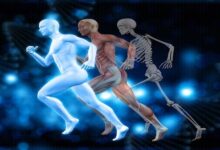Understanding the Complexities of Estimating the Prevalence of Pedophilia
How Active Play with Pets Can Help with Childhood Obesity in Australia
Correcting Cross Bites: Understanding Causes and Solutions
Why is exercise so important for seniors?
Speech Therapists for Adults – Regaining Confidence with Communication
The Anatomy of a Great CBD For General Health
7 Ways Owning a Pet Improve Fitness
Being healthy does not mean being fit
Maximize Your Profit with the Best Scrap Car Removal Service in Melbourne
Helpful Suggestions For Sustaining A Workout Routine
-
Fitness Builder

Nicho Hynes’ Training Regimen and Fitness Secrets
Nicho Hynes has emerged as one of the standout players in the NRL, known not only for his skill on…
Read More »
-
Health

Transform Your Smile with Invisalign Treatment Brisbane & Dental Implants
Smiling is one of the most convincing traits. It may influence your self-image as well as the perception of others.…
Read More » -

-

-
 April 25, 2024
April 25, 2024Expert Insights: Prebiotics vs. Probiotics for Gut Health
-

-
Life Style

Bridal Alterations: Ensuring the Perfect Fit
For brides, finding the perfect wedding dress is a momentous occasion, but it’s only the first step. Achieving the ideal…
Read More » -

-
Mental Health

The Role of Dogs in Mental Health Therapy
In the complex realms of mental health therapy, the use of dogs as therapeutic agents has gained considerable recognition and…
Read More » -

-
 February 14, 2023
February 14, 2023Valentine’s Day Messages for Boyfriends
-
Disease

A type of tea to control diabetes
Diabetes is a common condition characterized by excessive blood sugar levels. There are many different types of diabetes, such as…
Read More »
-
Exercise

Beginner daily workout routine at home
If you’re new to exercising or looking for a beginner workout routine that you can do at home, here’s a…
Read More » -
 February 13, 2023
February 13, 2023Sage Advice About Workout Every Day : Adult Boy
-
 December 5, 2022
December 5, 2022Is Golf a Good Form of Exercise? Is golf a good workout?
-
Men Fitness

Lean Muscle Gain – The Complete Guide to Building Strong, Defined Muscle Naturally
Lean Muscle Gain – The Complete Guide to Building Strong, Defined Muscle Naturally Gaining lean muscle isn’t just about lifting…
Read More » -
 August 26, 2022
August 26, 2022Tips For Muscle Building While Avoiding Injury
-
Skin Care

Summer Skin Care Tips – Beat Heat & Stay Sun Safe
Summer brings fun but also risks like heat rash, sunburn, chafing, and dehydration. These summer skin care tips will help…
Read More » -

-
 March 2, 2023
March 2, 2023Finding the Right Skin Care Product To Tackle Acne
-
 February 11, 2023
February 11, 2023How quickly does red light therapy work?
-

-
Fitness

Barbell Storage: Optimizing Space, Safety, and Efficiency
In any gym, proper storage is critical for both safety and aesthetics. At Kinta Fitness, we offer robust and stylish…
Read More » -
 August 10, 2023
August 10, 2023Weekly Muscle Training Guide: Balancing Your Gym Routine
-
 June 9, 2023
June 9, 20237 Ways Owning a Pet Improve Fitness
-
 January 16, 2023
January 16, 2023Being healthy does not mean being fit
-
 October 29, 2022
October 29, 2022Time-Tested Advice for Becoming Physically Fit






